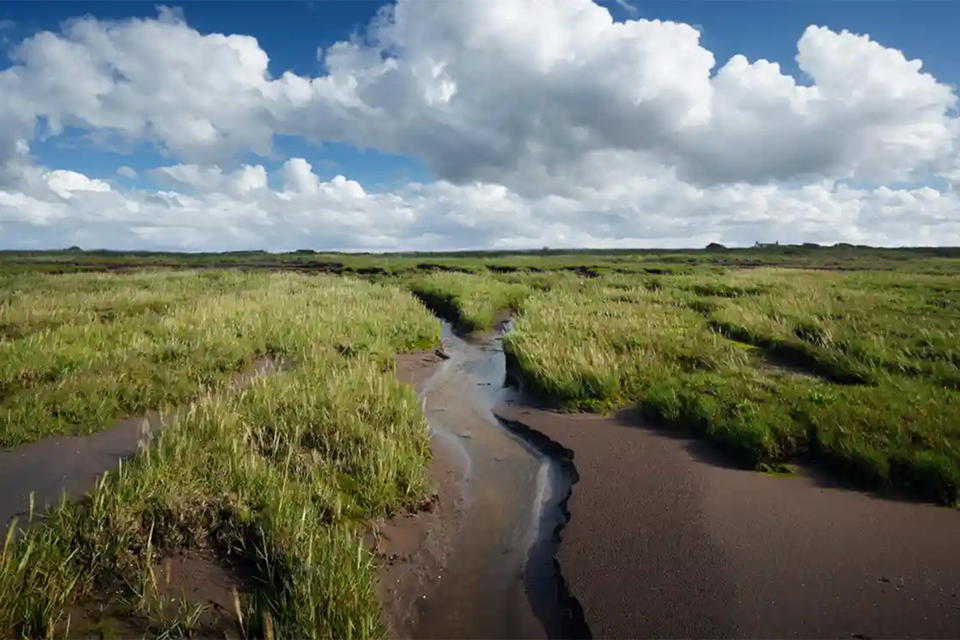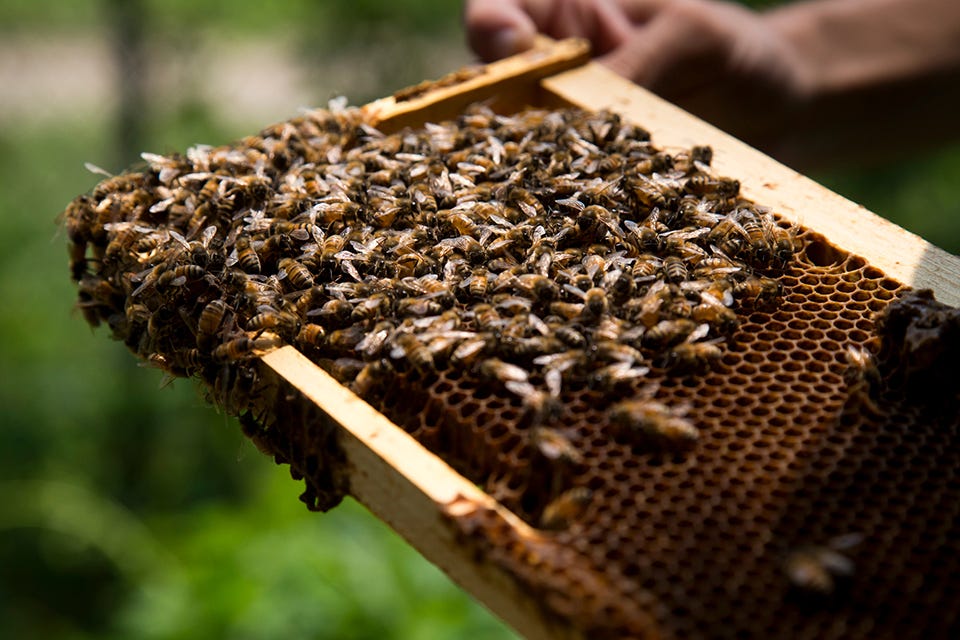Rare bumble bee sighted in Wales. State of emergency for Australian honey bees. A third of Brits have no idea why bees are so important.
Keeping us connected to the world of bees
Enjoy this week’s collection of bee-related news! Become a Friend of the Bee Report!
Was this email forwarded to you? Sign up here.
Conservation
Photo: Bumblebee Conservation Trust
Ruderal bumble bee’s rare sighting in Wales
(BBC) A species of bumble bee thought to have disappeared from Wales has been recorded in Carmarthenshire for the first time since 1973. “We found nine queens. It’s really incredible to find several on farm tracks and among upland pasture, areas where you just don’t find rare bees normally. It says a lot about the farmers here, farming low intensity, low stocking density which allows wildflowers to grow.”
Climate change negatively impacting bumble bees
(ScienceDaily, Simon Fraser University) Temperature changes have negatively impacted most species of bumble bees over the past 120 years, according to new new research. The researchers note that changes in temperature had more of a negative impact than other factors – such as precipitation or floral resources.
(Nautilus) The collapse of our pollinators may no longer be headlines, but we’re still killing their buzz.
Economics
Photo: Megan Hughes, ABC Rural
(ABC News) More beekeepers are preparing to have their hives destroyed after new detections of varroa mite were found at multiple sites across New South Wales, as authorities also consider a plan to poison feral bee populations. Three new biosecurity zones have been set up after the deadly parasite was detected on properties at Bulahdelah, on the Mid North Coast, and Seaham and Newcastle, in the Hunter region.
Emergency orders in place in Australia to protect bee industry from deadly varroa mite parasite
(ABC News) The movement of bees within New South Wales has been halted following the discovery of a deadly parasite at the Port of Newcastle. The statewide emergency order aims to prevent the spread of the varroa mite, described as the number one threat for Australia’s bee industry. Police along with biosecurity officers from the NSW Department of Primary Industries and Local Land Services have been tasked with overseeing compliance. All hives or bee products are in a state of lockdown.
Australian almond harvest in jeopardy as ‘Covid for bees’ strikes apiaries
(The Guardian) The discovery of varroa mite has had an immediate impact on apiaries, with a ban on movement across New South Wales, but is also likely to affect other agricultural industries, including the upcoming almond blossom season.
Breeding bees better suited to rainforest areas is a labor of love for Australian couple
(ABC News) Tropical north Queensland’s wet weather would normally turn bees to mush, but one colony of hardy workers is being bred to make it through the wet season unscathed. “We’re trying to achieve a resilient bee that’s going to outlive us and we don’t want to wrap them up in cotton wool and tend to them all the time.”
Gaza’s honey production plummets as climate change confuses bees
(The National) Wild swings in the weather have cut honey production in the Gaza Strip by nearly half this year and are threatening the territory’s bee population with high and low temperatures outside the normal historical range.
Policy/Law
Photo: James Osmond, Alamy
U.K. government to scrap European law protecting special habitats
(The Guardian) U.K. environment secretary George Eustice wants to tear up a key piece of European law that environmentalists say protects cherished habitats in the U.K. Eustice told MPs the Habitats Directive was in a list of laws he wanted to amend in the forthcoming Brexit freedoms bill designed to cut red tape, saying it was bureaucratic and fundamentally flawed on multiple levels. The directive has provided protections for UK habitats since 1992. It supports a network of areas – known as Natura 2000 sites – where special habitats are protected. There are more than 320 Natura 2000 sites in England, nearly 900 in the UK and more than 25,000 throughout Europe.
Nova Scotia government gives $100,000 to blueberry growers who use bees for pollination
(CTV News) “Beekeepers’ pollination services are essential to the production of blueberries and other crops in Nova Scotia,” said Minister of Agriculture Greg Morrow.
Science
Photo: James Brosher, Indiana University
Microbe protects honey bees from poor nutrition, a significant cause of colony loss
(Indiana University) Honey bee larvae are fed by their sister bees. Their diet consists of foraged ingredients such as nectar and pollen, as well as royal jelly. In addition to being more nutritious than nectar and pollen, royal jelly has long been known to possess potent antimicrobial properties. This means that most microbes exposed to royal jelly die. Except one.
Urban bees collaboration wins USDA grant
(Washington University in St. Louis) Around the world, it’s becoming increasingly popular to plant orchards within cities and towns. However, maintaining orchards in heavily populated areas poses several challenges. In particular, there needs to be sufficient insect pollinators to ensure fruiting success. A team was recently awarded a $633,000 grant from the U.S. Department of Agriculture to evaluate pollination in orchards across the city of St. Louis. They will examine how factors such as human population density, socioeconomic status, soil type and surrounding vegetation impact insect numbers and fruit yield.
Society/Culture
Photo: Michael Leckie, The British Bee Charity
Nearly a third of Brits have no idea why bees are so important to the environment
(Irish Mirror) A study of 2,000 adults found 66% are worried about the decline in native British bees – with more than a third claiming numbers have dropped noticeably in their local area. But while there are fears for the future of the essential insects, 28% don’t know why they’re so crucial to the ecosystem – unaware bees fertilize many of the crops grown in the U.K.
Man vs Bee review: Rowan Atkinson’s Netflix comedy is a better Bean
(The Independent) “As you’d expect from a Netflix production, it’s smartly produced and directed, and Atkinson as Bingley is much more engaging than Bean, and is still game enough to spend much of his time on screen in his underpants. The bee, by the way, survives, and is looking forward to the second series and some more peanut butter.”
Technology
Robotic pollinator could decrease reliance on bees
(The Daily Evergreen) Researchers are creating a robotic pollination system to stabilize the pollination process and decrease farmers’ dependence on bees. The robot and its electrostatic sprayer will be tested in a lab before they are tested in the field next spring.
One More Thing…
Linocut print rusty-patched bumble bee by Dr Ele Willoughby @minouette via Twitter.









